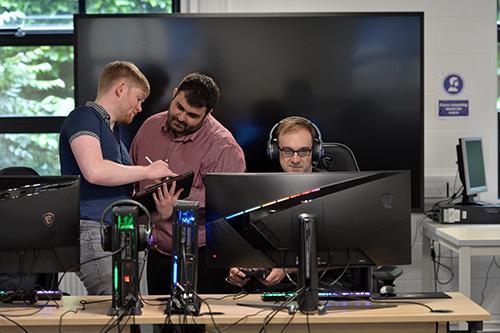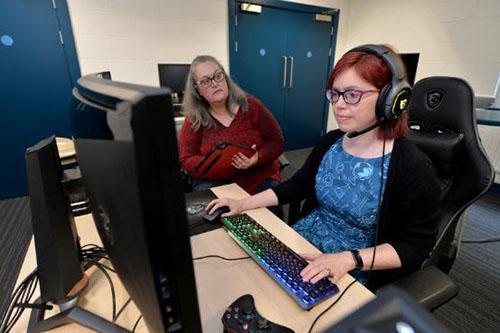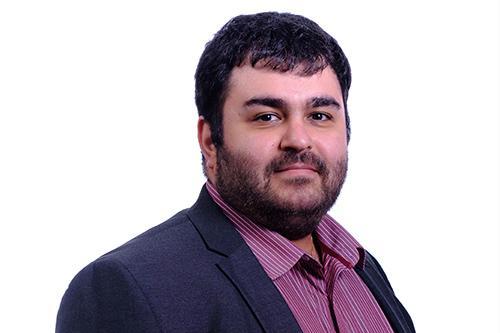How does a curved screen effect the eye?
A study is being held with the world of computer gaming at its core. In partnership with gaming giant MSI, Dr Ghorbani Mojarrad, Lecturer in Optometry and lead on the study, is investigating the effect using a curved screen can have on eye health. Inside the School of Optometry & Vision Science at the University, the team are looking at the digital eye strain of gamers using two different MSI monitors. And though gaming and screen curvature isn’t a main area of research for Dr Ghorbani Mojarrad, the study will shine a light on key aspects of the Bradford Academic’s work.
“My area of research is aimed at understanding why we become short-sighted. The prevalence of short-sightedness has increased dramatically over the last 50 years and shows no signs of stopping; 50% of the global population is estimated to be short-sighted by 2050. We are aware that there are a number of environmental and genetic factors, but becoming short-sighted is rather complex, and not as simple as just reducing the length of time on our devices.”

Commonly, public perception is that increased mobile phone and computer use contributes to the need for glasses, but the evidence of this direct cause is contested in research.
The new study involves asking participants to play a video game on different screens on different days with vision checks taking place before and after they play. These checks include an assessment of vision, low contrast clarity, the ability to focus on near tasks, a scan of the back and front of the eye and an assessment of the quality and quantity of tears. The screen project is looking at whether there is a benefit to the degree of screen curvature for reducing signs or symptoms of digital eye strain, when concentrating on a task such as playing a video game. This can involve sensations of eye pain, fatigue, and an inability to focus up close. There is little research into the use of curved screens, and whether they could provide any benefits, which is why MSI have aimed to work with Dr Ghorbani Mojarrad to investigate this.

Currently in the pilot stages of investigating short term outcomes, such as eye focussing, and inducement of dry eyes, the team is looking to expand and investigate long term benefits. A curved screen could hypothetically reduce the defocus induced in the periphery when working on a computer, which means it could reduce or negate the effect from flat screens over long periods of use. The results from the study will be released in September 2021, with Dr Ghorbani Mojarrad hoping they inspire further research in this area with co-investigators Dr Matthew Cufflin and Dr Lindsay Rountree from the University of Bradford.
Dr Ghorbani Mojarrad said "As short-sightedness commonly develops in children, an engaging video game that keeps them focussed on the screen is a good way to incorporate an appealing and familiar way to test our hypotheses. New technologies such as a curved screens, initially developed for aesthetic improvements, could be investigated for having long-term optical benefits. Incorporating ocular health research to help guide and shape future technologies is a great opportunity. After the covid-19 pandemic we know screen use has increased by 61% with more people gaming and working from home and screen use in the future only likely to increase. The ability to use technology to try and avoid or reduce symptoms of any eye problems would be amazing. I think it’s important that we investigate screen use, and new technologies such as curved screens. What will be interesting is whether people’s preference will correlate with the effects on eye health, and whether the shape of a screen can reduce the impact of prolonged screen time.”
We now want to investigate the potential and whether using curved screens achieve any significant differences in task performance.
Dr Neema Ghorbani Mojarrad is a lecturer at the University of Bradford and locum optometrist. He recently finished his PhD investigating whether genetic information could be used to predict children that would go on to develop myopia. Previously awarded the Newly Qualified Optometrist of the Year award, his current research interests include the genetics of refractive error, understanding the causes of myopia, and contact lens interventions for myopia management. Dr Ghorbani Mojarrad credited the ranks of the internationally recognised staff within the School of Optometry & Vision Science at the University for his decision to work in Bradford.

